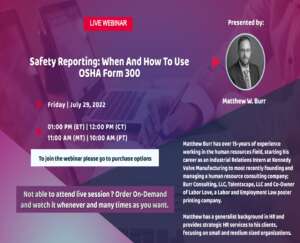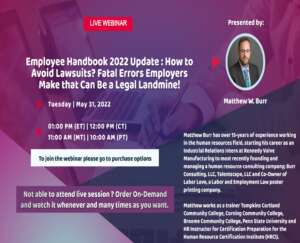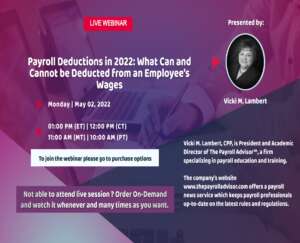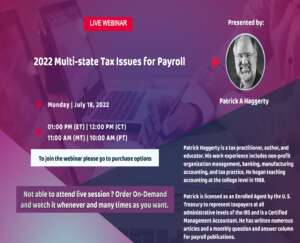EEOC on Inequity, Harassment, and Discrimination in 2022
With employment discrimination on the rise, EEOC encourages employers to provide anti-harassment training to their employees and managers and to swiftly investigate and resolve employees’ complaints of workplace harassment and discrimination.
Employees should bring any harassment they face into the management’s attention. If an employee lodges a complaint against a colleague or the employer itself, an investigation is a required step since courts have ruled that failure to investigate on the part of an employer is akin to discrimination.
Employers should confront the harasser to immediately stop the unwelcomed conduct. They should establish an effective complaint and investigation process against harassment that encourages employees to raise valid concerns before they escalate.
What’s the process for employees to follow when filing a charge of discrimination with the EEOC and State/Local Agencies? What can employers expect after a charge is filed? What does an unbiased investigation look like? How’s an investigator selected?
How do the EEOC complaints hurt employers? What happens when EEOC penalties are levied against employers? What should employers NEVER do when a complaint has been received or an active investigation is going on?
How can you mitigate the risk of legal ramifications when conducting investigations? What are the stages of investigation and what consequences does non-compliance bring?
Join us on Pedu to find out!
EEOC and Employers: Harassment Complaints to Lawsuits
- What are the responsibilities and functions of the EEOC?
- What is the Federal legislation requiring equal treatment of employees?
- Title VII of the Civil Rights Act of 1964: Original protected classes and currently-acknowledged protected classes; further amended in 2020
- Best practices to avoid an EEOC investigation
- Best practices for avoiding claims of sexual harassment
- What’s disparate treatment v. disparate impact?
- Different forms of Harassment and applicable court cases
- What’s Quid-Pro-Quo harassment and Hostile Work Environment?
- What are the charges of retaliation and discrimination?
- What’s the process of filing a charge with the EEOC?
- Common reasons employees state for not filing a claim
- EEOC determinations
- Conciliation process
- How to establish Affirmative Action programs?
- EEOC’s authority and role when adjudicating claims of harassment and discrimination
- Seriousness of EEOC complaints and costs of litigation
Harassment Claims, Investigations, and Consequences
- Formal complaints and the investigative process
- How to create a plan for your investigation?
- How to ensure confidentiality?
- Providing interim protection for the alleged victim
- Utilizing internal and external investigators
- How to develop interview questions and conduct interviews?
- Making a determination
- Closure of the investigation
- How to develop a written summary of investigation results?
Why is it Important to Attend?
Organizations and employers have legal and moral responsibilities to support diversity in their workplaces and to ensure compliance with all equal employment opportunity rules and regulations. Unfortunately, workplaces have not always been welcoming to women and minorities, and many people have faced prejudicial behavior when seeking employment or while on the job.
While laws like the Civil Rights Act of 1964 have improved the working lives of many, there are still serious issues that require attention and action. Human Resource professionals are especially important for creating hospitable and inclusive work environments.
Policies that discriminate against protected classes of individuals, either explicitly or accidentally, are illegal. Thus, even unintentionally discriminatory practices that disparately impact those that are vulnerable to prejudicial treatment must be prevented. Investigating an employee’s claim of discrimination or harassment requires immediate action on the part of employers to satisfy the recommendations of the Equal Employment Opportunity Commission (EEOC).
Responsiveness to a complaint and an investigation will not only yield the best information and evidence, but it will also enhance both the investigator’s and employer’s credibility. Investigations can help the organization identify and resolve internal problems before they become widespread.
Given that every complaint has the potential to become a lawsuit, employers should investigate every case in a manner in which it can be presented to a court of law, if necessary. As potentially disruptive as investigations can be, they must be prompt, thorough, and effective to ensure all parties’ protection.
Certification:
 Pedu is recognized by SHRM to offer Professional Development Credits (PDCs) for the SHRM-CPSM or SHRM-SCPSM. This program is valid for 2.0 PDCs for the SHRM-CPSM or SHRM-SCPSM. For more information about certification or recertification, please portal.shrm.org.
Pedu is recognized by SHRM to offer Professional Development Credits (PDCs) for the SHRM-CPSM or SHRM-SCPSM. This program is valid for 2.0 PDCs for the SHRM-CPSM or SHRM-SCPSM. For more information about certification or recertification, please portal.shrm.org.
 This Program, ID No. 586305, has been approved for 2.00 HR (General) recertification credit hours toward aPHR™, aPHRi™, PHR®, PHRca®, SPHR®, GPHR®, PHRi™ and SPHRi™recertification through HR Certification Institute® (HRCI®).
This Program, ID No. 586305, has been approved for 2.00 HR (General) recertification credit hours toward aPHR™, aPHRi™, PHR®, PHRca®, SPHR®, GPHR®, PHRi™ and SPHRi™recertification through HR Certification Institute® (HRCI®).
Join us on Pedu to understand this process in detail!
Who Must Join?
- Senior Leadership
- Employees
- Managers & Supervisors
- Project Team Leaders
- Human Resources Professionals
- Recruiting Professionals
- Operations Professionals

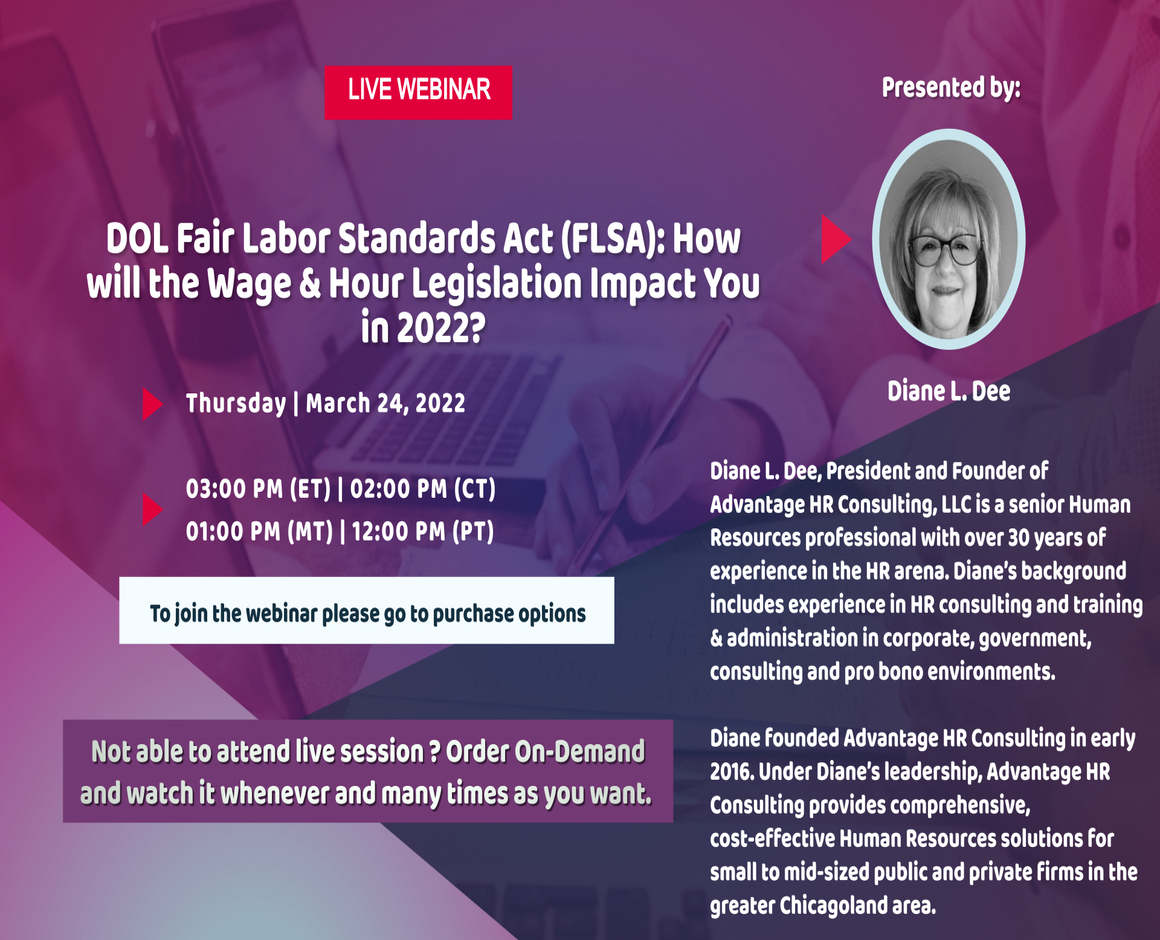

 Diane L. Dee
Diane L. Dee